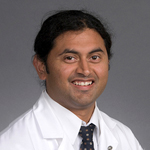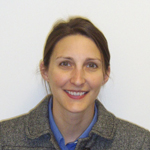Permanent link: https://www.iths.org/?p=28357
Search
Take a look at the grid below and see where your project best fits. If it’s still not clear please reach out to ithsedu@uw.edu with a short description of your project and we’ll be happy to assist you.
| Develop | Demonstrate | Disseminate |
|---|---|---|
| Therapeutic target identification and/or validation | Phase I or Phase II clinical studies/trials | Epidemiological studies such as case-control, cohort, or meta-analytic studies |
| Development of novel therapeutics prior to clinical testing | Biomarker identification & validation | Health disparities research |
| In vitro or cell-based assays | Pharmacokinetics / Pharmacodynamics of novel therapies in humans | Community-based & community participatory research |
| Research using animal models | Pilot & small proof-of-concept studies in humans | Implementation science |
Citation Information
 ITHS provides (A) direct support through pilot funding, KL2, and TL1 programs and (B) research resources and services, such as REDCap, clinical research networks, and research staffing. Below you can find basic guidelines below for how to cite ITHS grants and whether the NIH public access policy applies to your publication.
ITHS provides (A) direct support through pilot funding, KL2, and TL1 programs and (B) research resources and services, such as REDCap, clinical research networks, and research staffing. Below you can find basic guidelines below for how to cite ITHS grants and whether the NIH public access policy applies to your publication.
All publications, press releases, or other documents that result from the utilization of any ITHS resources are required to credit the grant. This helps us show our funder, our partners, and our collaborating institutions the impact of ITHS so that we can continue to provide training and research service programs to you.
If you have any questions about ITHS award citations or NIH public access policy compliance, you can send an email to the ITHS navigator (ithsnav@uw.edu). Thank you for your cooperation in acknowledging our support of your work.
Share Your Success
Have you published with an ITHS citation? Please share your success by sending us the title, author, and journal name. It will be included in our database and could help you connect with other researchers for collaboration. Email ithsnav@uw.edu.
A) DIRECT SUPPORT (PILOTS, KL2, TL1)
When reporting on a KL2, TL1, pilot, or other project funded by ITHS, you should:
- Cite the relevant ITHS grant. Template language to include in the acknowledgements section of your publication is provided below.
- Comply with the NIH public access policy. Review additional information about the NIH policy here: Determine Applicability | Public Access (nih.gov).
If you are/were a KL2 scholar and are reporting on your KL2 project:
“Research reported in this publication was supported by the National Center for Advancing Translational Sciences of the National Institutes of Health under award number KL2TR002317 ([Scholar’s last name or initials]). The content is solely the responsibility of the authors and does not necessarily represent the official views of the National Institutes of Health.”
If you are/were a TL1 trainee and are reporting on your TL1 project:
“Research reported in this publication was supported by the National Center for Advancing Translational Sciences of the National Institutes of Health under award number TL1TR002318 ([Trainee’s last name or initials]). The content is solely the responsibility of the authors and does not necessarily represent the official views of the National Institutes of Health.”
If you received other direct support from ITHS (such as ITHS pilot funding) and are reporting findings that resulted from the project:
“Research reported in this publication was supported by the Institute of Translational Health Sciences, funded by the National Center for Advancing Translational Sciences of the National Institutes of Health under award number UL1TR002319. The content is solely the responsibility of the authors and does not necessarily represent the official views of the National Institutes of Health.”
B) RESOURCES OR SERVICES PROVIDED BY ITHS
- Cite the ITHS UL1 grant in your manuscript’s acknowledgements. Template language to include in the acknowledgements section of your publication is provided below.
- Cite relevant publications describing resources in your manuscript’s methods. Some resources provided by ITHS have been described in the literature and should be cited appropriately. Standard descriptions and references are provided below for selected resources. You can also ask ITHS staff for more information.
- Review NIH public access policy requirements. If the project is directly supported by an ITHS pilot, TL1, or KL2 award or other ITHS funds, please refer to (A) Direct Support above. Use of ITHS services or resources alone does not obligate public access, and ITHS staff can advise on whether the NIH policy applies. If the project is supported by another NIH-funded center or grant, review the policy here: Determine Applicability | Public Access (nih.gov).
If your project used other ITHS services or resources such as REDCap, biostatistics, research coordination, or an ITHS research unit:
Acknowledgments
“[Service(s) and/or unit(s)] [is/are] supported by the Institute of Translational Health Sciences, which is funded by the National Center for Advancing Translational Sciences of the National Institutes of Health under award number UL1TR002319.”
Examples:
“The REDCap instance used is supported by the Institute of Translational Health Sciences, which is funded by the National Center for Advancing Translational Sciences of the National Institutes of Health under award number UL1TR002319.”
“Biostatistical and research coordination services were provided by the Institute of Translational Health Sciences, which is funded by the National Center for Advancing Translational Sciences of the National Institutes of Health under award number UL1TR002319.”
Methods
REDCap
Study data were collected and managed using REDCap electronic data capture tools hosted at the Institute of Translational Health Sciences. 1,2 REDCap (Research Electronic Data Capture) is a secure, web-based software platform designed to support data capture for research studies, providing 1) an intuitive interface for validated data capture; 2) audit trails for tracking data manipulation and export procedures; 3) automated export procedures for seamless data downloads to common statistical packages; and 4) procedures for data integration and interoperability with external sources.
¹Harris PA, Taylor R, Thielke R, Payne J, Gonzalez N, Conde JG. Research electronic data capture (REDCap) – A metadata-driven methodology and workflow process for providing translational research informatics support, J Biomed Inform. 2009 Apr;42(2):377-81.
2 Harris PA, Taylor R, Minor BL, Elliott V, Fernandez M, O’Neal L, McLeod L, Delacqua G, Delacqua F, Kirby J, Duda SN, REDCap Consortium. The REDCap consortium: Building an international community of software partners. J Biomed Inform. 2019 May 9; doi: 10.1016/j.jbi.2019.103208.
LEAF
Study data were identified and extracted using the Leaf cohort discovery tool¹ hosted at the Institute of Translational Health Sciences and UW Medicine. Leaf is a secure, open-source web-based application designed to flexibly query clinical databases for cohort discovery, providing: 1) an intuitive interface for cohort definition; 2) user logs and audit trails for tracking query and data export; 3) automated export procedures for seamless data transfer to REDCap and other tools; and 4) tools for visualizing cohort demographics and timelines.
¹Dobbins NJ, Spital CH, Black RA, Morrison JM, de Veer B, Zampino E, Harrington RD, Britt BD, Stephens KA, Wilcox AB, Tarczy-Hornoch P, Mooney SD. Leaf: an open-source, model-agnostic, data-driven web application for cohort discovery and translational biomedical research. J Am Med Inform Assoc. 2020 Jan 1;27(1):109-118. doi: 10.1093/jamia/ocz165.
WPRN
The WWAMI region Practice and Research Network (WPRN) is a regional practice-based research network of primary care clinics across in Washington, Wyoming, Alaska, Montana, and Idaho (WWAMI), which is coordinated through the Institute of Translational Health Sciences.¹ Its mission is to improve the health and well-being of patients in their communities through the conduct of collaborative research that informs and enhances primary care practice.
¹Primary Care Practices (WPRN). Institute of Translational Health Sciences. https://www.iths.org/community/partners/crn/wprn/
NW PCI
Coordinated by the Institute of Translational Health Sciences, the Northwest Participant and Clinical Interactions (NW PCI) Network is a collaborative group of clinical and translational research centers, affiliated with medical centers, health systems, clinics and universities, committed to connecting diverse populations to local, high-quality research that serve patients across Washington, Wyoming, Alaska, Montana, and Idaho (WWAMI).1,2
¹Northwest Participant and Clinical Interactions (PCI) Network. Institute of Translational Health Sciences. https://www.iths.org/community/partners/crn/pci/
2Baldwin LM, Hassell L, Laukes C, Doyle M, Reedy A, Mollis B, Albritton S, Ciemins E, Coker R, Brant J, Tuttle KR, Baker L, Ramsey B. The Northwest Participant and Clinical Interactions Network: Increasing opportunities for patients to participate in research across the Northwestern United States. J Clin Transl Sci. 2017 Apr;1(2):94-100.
Data QUEST
Study data were provided via a centralized data repository, Data QUEST, stored within a secure environment provided by the Institute of Translational Health Sciences, which provides researchers with access to diverse populations by providing data collected in routine care through the electronic health record among community facing primary care practice settings.1,2
1Stephens KA, Lin C, Baldwin L, Echo-Hawk A, Keppel GA, Buchwald D, Whitener R, Korngiebel D, Berg AO, Black RA, Tarczy-Hornoch P. (2012). LC Data QUEST: A technical architecture for federated data sharing across community primary care practices. AMIA Summits Translational Science Proceedings, Mar 19, 2012, 57-62.
2Stephens KA, Anderson N., Lin C, Estiri H. (2016). Implementing Partnership-driven Clinical Federated Electronic Health Record Data-sharing Networks. International Journal of Medical Informatics, 93, 26-33.
What’s Your ITHS Story?
We’d love to hear how ITHS has supported your research and share that story with the world! Fill out a form here and we may feature you and your research on our website, in our newsletters, social media, and via other public-facing materials.
Tell Your ITHS Story
ITHS KL2 Multidisciplinary Clinical Research Career Development Program Request for Applications
The ITHS KL2 Multidisciplinary Clinical Research Career Development Program provides the time, funding, mentorship, and training necessary to foster the early career development of clinical and translational researchers. The program is funded by the NIH and welcomes scholars with faculty appointments from all health professions.
KL2 Scholars are appointed for up to three years of support. The program encourages all types of clinical research, including patient-oriented research, translational research, small- and large-scale clinical investigation and trials, epidemiologic and natural history studies, health services research, and health behavior research.
Eligibility Change – Please Read
Please see Eligibility section below for July 2024 update.
Application Period Open
Key Dates
- Application Open
August 12, 2024 - Application Deadline
October 7, 2024 - Notification of Awards
Mid-December, 2024 - Appointment Start Date
March 1, 2025
Info Session: Aug 14th 4-5 (PDT) Register here
KL2 Q&A Sessions
- KL2 Q&A Session: July 9th 1-2pm (PDT)
Registration Link: https://washington.zoom.us/meeting/register/tJcofuGopzkjGtNczyO1OfZMjqzdKV2SOcx7 -
KL2 Q&A Session: Aug 14th 4-5pm (PDT)
Career Development Event: How to Write a K-Award Application to Maximize Funding
NIH Diversity Statement
Every facet of the United States scientific research enterprise — from basic laboratory research to clinical and translational research to policy formation — requires superior intellect, creativity, and a wide range of skill sets and viewpoints. NIH’s ability to help ensure that the nation remains a global leader in scientific discovery and innovation is dependent upon a pool of highly talented scientists from diverse backgrounds who will help to further NIH’s mission.
Research shows that diverse teams working together and capitalizing on innovative ideas and distinct perspectives outperform homogenous teams. Scientists and trainees from diverse backgrounds and life experiences bring different perspectives, creativity, and individual enterprise to address complex scientific problems. There are many benefits that flow from a diverse NIH-supported scientific workforce, including: fostering scientific innovation, enhancing global competitiveness, contributing to robust learning environments, improving the quality of the researchers, advancing the likelihood that underserved or health disparity populations participate in, and benefit from health research, and enhancing public trust.
Program Overview
Program Overview
The KL2 program is a career development program for early-career investigators sponsored by the National Center for Advancing Translational Sciences (NCATS), a center of the National Institutes of Health (NIH).
The major components of the ITHS KL2 program are:
- Protected research time: KL2 scholars must devote at least 9 person-months of full-time professional effort to pursuing their proposed KL2 research project and participating in programmatic activities. This requirement protects scholars’ research time and ensures they have the freedom to develop their research projects fully.
- Salary support: The KL2 award covers a minimum of 75% of a scholar’s full-time salary up to $85,000/year. The award also covers benefits proportionally.
- Research and career development funding: KL2 scholars will receive $25,000/year in research funds and up to $2,500/year to devote to travel to professional meetings and conferences.
- Mentorship: KL2 scholars receive additional mentorship from KL2 faculty to complement their career development in translational research.
- Interactive seminars: The program provides in-depth training on skills and competencies critical to conducting translational research. Over the course of a three-year appointment, scholars can expect to receive training in all of the CTSA-designed Core Competencies for Translational Research. Seminars also include opportunities for scholars to hone their presentation and writing skills through Works-in-Progress talks and writing workshops.
Funding
Funding
The KL2 program provides a minimum of 75% of a KL2 Scholar’s salary (up to $85,000 per year) for up to three years. In return, at least 75% of a KL2 Scholar’s full-time professional effort must be devoted to pursuing their KL2 research project, including the programmatic elements of the KL2 Program. Each KL2 Scholar’s home department, school, or institution will be required to provide institutional support for any KL2 Scholar whose salary support for their committed ITHS KL2 effort exceeds $85,000.
In addition to salary support, KL2 Scholars will receive research funds of up to $25,000/year based on an annual budget review and approval. KL2 Scholars will also receive up to $2,500//year to devote to travel to professional meetings and conferences.
Please note:
- KL2 scholars conducting research that involves human subjects will not be eligible to receive KL2 support until they have completed the NCATS Prior Approval process. This process will be completed in the Just-in-Time period after the award letter is signed and before the appointment begins.
- KL2 support is contingent upon continual scholar progress and compliance with ITHS directives, as well as continued support from the NCATS grant that funds the KL2 program.
Eligibility
Eligibility
The KL2 program is open to investigators at the postdoctoral or early career faculty level who plan to conduct, or are conducting, translational research. If you are at the postdoctoral level and do not currently have a faculty appointment, your department support letter will need to indicate that upon acceptance you will have a faculty appointment.
Eligibility Update July 2024: Due to a change in NIH requirements beyond ITHS control, KL2 applications will only be accepted for individuals with an appointment (or expectation of appointment) at one of ITHS partner institutions: University of Washington, Fred Hutchinson Cancer Center, or Seattle Children’s Research Institute.
Faculty at non-partner WWAMI institutions: The KL2 Monthly Seminars & Mentorship will be accessible to our WWAMI scientific community through the KL2 Seminar Fellows Program (additional information and dedicated webpage coming soon). Additionally, ITHS can offer support for development and review of career development award proposals to WWAMI early-stage faculty. The level of support provided will be determined by ITHS capacity, applicant needs, and alignment to ITHS mission and priorities. Please reach out to ithsedu@uw.edu for more information.
Eligibility Requirements
- Have an appointment (or expectation of appointment upon acceptance) at one of ITHS partner institutions: University of Washington, Fred Hutchinson Cancer Center, or Seattle Children’s Research Institute.
- Be a U.S. citizen or lawful permanent resident. Permanent residents must have a U.S. Permanent Resident Card (form I-551) or other verification of their legal status as a permanent resident at the time of application. Individuals on temporary or student visas are not eligible.
- Be at an early stage of their career. Applicants should not have been in a tenure-track Assistant Professor position for more than three years at the time of application.
- Have a research or health-professional doctoral degree applicable to clinical research. These degrees include: MD, PhD, DrPH, DO, DDS, DMD, OD, DC, PharmD, ND, PsyD.
- Be able to commit a minimum of nine calendar months of full-time professional effort for career development and research activities associated with the program.
Applicants are ineligible for the KL2 Program if they are:
- Simultaneously participating in clinical fellowships leading to clinical certification (with some exceptions, see FAQ).
- Simultaneously submitting or have pending an application for any other PHS mentored career development awards that duplicate any of the provisions of the KL2 program.
- An individual making a mid-career change into clinical research.
- A former or current principal investigator on any NIH research project grant or equivalent non-PHS peer reviewed research grants that are over $100,000 direct costs per year, or a project leader on sub-projects of program project (P01) or center grants (P50). Note: this exclusion does not apply to cases of NIH Small Grants (R03) or Exploratory/ Developmental (R21) grants or their equivalents.
Additional Information
- The KL2 program cannot support research with a focus on global health or research located outside of the United States.
- ITHS strongly encourages applications from from underrepresented scientists and investigators.
- Exceptions to the 75% effort requirement may be made for limited specialties (e.g., 50% effort for surgeons and other procedural-based specialties requiring greater clinical effort to maintain clinical skills such as ENT, Orthodontics).
An ITHS membership is required to apply. To become a member, please complete the ITHS Membership Form.
How to Apply
How to Apply
The KL2 Program application consists of standard demographic information, a biosketch from the NIH template, and a detailed and thorough description of your proposed project. In addition, you will need three letters of recommendation.
Key Dates
All materials, including the Letters of Recommendation, must be received by 11:59 p.m. on October 7, 2024.
- Application Deadline
October 7, 2024 - Notification of Awards
Mid-December, 2024 - Appointment Start Date
March 1, 2025
Step 1. Obtain Letters of Recommendation
You will need three letters of recommendation:
- 1) Department, Division, or Institutional Letter of Support
(Note: this letter must address the requirements listed under “Institutional Commitment to Candidate’s Research Career Development” on page K-96 of the NIH Career Development Instructions) - 2) Primary Mentor Letter of Support
- 3) Candidate’s Choice for Letter of Support
Applicants: Please direct people submitting letters for you to the Letter Submission Form as early as possible. All letters of recommendation are due on October 7, 2024.
You can either:
1. Copy the following link, and deliver it any way you’d like (e.g. Craft your own email).
https://www.iths.org/KL2-Letters
– OR –
2. Enter a few details into a form, and we’ll send the link to them for you.
Step 2. Complete the following items prior to accessing the online application
Applicants will submit under one of the following three tracks of translational science that most accurately describes their proposed project.
| Develop | Demonstrate | Disseminate |
|---|---|---|
| Therapeutic target identification and/or validation | Phase I or Phase II clinical studies/trials | Epidemiological studies such as case-control, cohort, or meta-analytic studies |
| Development of novel therapeutics prior to clinical testing | Biomarker identification & validation | Health disparities research |
| In vitro or cell-based assays | Pharmacokinetics / Pharmacodynamics of novel therapies in humans | Community-based & community participatory research |
| Research using animal models | Pilot & small proof-of-concept studies in humans | Implementation science |
Choose the translational science track in which your proposed project fits best (those unsure of which phase their research falls under should email Christy McKinney, KL2 Program Director, for guidance).
- 4) NIH Biosketch
- Create a personal statement detailing your interest in the KL2 program and how the program will help further your career as a translational researcher
- Create a hypothesis-based research proposal that includes a mentorship plan
- Create a timeline table detailing the progression of your proposed project over three-year KL2 program appointment
Step 3. Complete the online application form
Frequently Asked Questions
FAQs
KL2 Program
How is the KL2 program funded?
The NIH KL2 Mentored Clinical Research Scholars Program is funded through NCATS as part of a broad Clinical and Translational Science Awards (CTSA) Initiative.
How many funded positions will there be each year?
We hope to select three KL2 scholars each year.
Yes. KL2 scholars are allowed to receive concurrent support from federal sources, as long as the effort dedicated to other grants does not reduce their KL2 effort to below 9 person-months (or .75 FTE) and the support is for a different project with separate goals.
How is this award different from NIH individual Career Development Awards (CDA)?
Specific information regarding individual CDAs
- NIH Career Development Awards – Individual mentored CDAs
- NIH Career Development Awards – Individual non-mentored CDAs
Individuals who have already obtained an individual Kaward will not be eligible to apply for our KL2 award.
The KL2 award is an Institutional Mentored Research CDA. It is similar in intent, scope, and funding to individual mentored K awards. All NIH Mentored CDAs have the same general level of effort requirements. However, there are several important differences. The application materials and time to notification are much shorter. A personal interview is required.
A core curriculum will be provided that will develop general scholarship in a breadth of clinical research topics. Intensive clinical research mentorship is also a primary focus of the CTSA KL2 award.
Finally, awards will be determined by a committee comprised of UW, Seattle Children’s, Fred Hutch, and other ITHS partner faculty and affiliated investigators.
Early career researchers are normally limited to 6 years of K-support overall. Since the ITHS KL2 program is designed for three years of support, applicants should not have received more than three years of K12 or KL2 support prior to applying. Furthermore, the applicant would need to justify additional mentored research training or training in a team context.
We have not established explicit limits on time since training. However, this award is best suited for applicants who are early in their professional careers. This award is not meant to serve as support for applicants already established in their field, nor is it meant to aid in a career change. Individuals who have achieved the rank of associate professor are not eligible.
KL2 scholars must hold a doctoral level degree. We are seeking individuals at an early stage of their career, even while they are in sub-specialty training. We expect that KL2 scholars will be postdoctoral level trainees or junior faculty who plan to conduct, or are conducting, clinical and translational research. Some KL2 scholars may be at the tenure-track/assistant professor level when they enter the program, but we hope most KL2 scholars will be at a much earlier stage. We expect that KL2 scholars will become assistant professor or tenure-track clinical research faculty either during or after they progress through the program.
KL2 scholars who achieve promotion to the rank of Associate Professor will have their appointments terminated at the end of the grant year in which this promotion is achieved.
Please see this link for more information:
Can this program be combined with a clinical fellowship?
No.
KL2 funds cannot be used to support clinical fellowship training. However, fellows who have completed the part of their fellowship needed for sub specialty certification are eligible to apply. For example, although a Medical Oncology fellowship may last three to four years, fellows who have completed two years may be eligible to sit for the boards, and are therefore eligible. In general, applicants should be board-eligible for their specialty or subspecialty when they enter the KL2 program.
The KL2 program cannot support any investigators with a focus on global health and research located outside of the United States. While appointed to the KL2 program, scholars may not participate in any research work or travel outside of the United States and Canada (with the exception of international travel for conference attendance). Conducting research in the United States with foreign samples and data is allowed.
Do I have to be a member of a specific Health Science School to apply?
No.
This program strongly encourages applications from members of all UW Health Science Schools. This includes the Schools of Pharmacy, Nursing, Public Health and Community Medicine, Social Work, Dentistry, and Medicine. In addition, the program strongly encourages applications from individuals at ITHS partner and collaborating institutions.
Is it possible to see an example of a successful application?
Yes, please email us at ithsedu@uw.edu to request a successful application and include the track to which you will be applying.
How do I know which track to apply to?
Take a look at the grid below and see where your project best fits. If it’s still not clear please reach out to ithsedu@uw.edu with a short description of your project and we’ll be happy to assist you.
| Develop | Demonstrate | Disseminate |
|---|---|---|
| Therapeutic target identification and/or validation | Phase I or Phase II clinical studies/trials | Epidemiological studies such as case-control, cohort, or meta-analytic studies |
| Development of novel therapeutics prior to clinical testing | Biomarker identification & validation | Health disparities research |
| In vitro or cell-based assays | Pharmacokinetics / Pharmacodynamics of novel therapies in humans | Community-based & community participatory research |
| Research using animal models | Pilot & small proof-of-concept studies in humans | Implementation science |
Contact Us
Contact Us
For information regarding this program, contact:
MILU WORKU
Manager of Training Programs
Institute of Translational Health Sciences
850 Republican Street, Box 358051, Seattle, WA 98109
Email / 206.543.0542 / fax 206.616.9250
Page last modified: (PST)
2023 UW Medical Data Science Symposium Speaker and Moderator Bios
Many thanks to all of our Symposium speakers and session moderators. Learn more about them below.
Keynote Speaker: Atul Butte
Atul Butte, MD, PhD
Priscilla Chan and Mark Zuckerberg Distinguished Professor of Pediatrics, Bioengineering and Therapeutic Sciences, and Epidemiology and Biostatistics at UCSF
Director, Bakar Computational Health Sciences Institute, UCSF
Chief Data Scientist, University of California Health System (UC Health)
Atul Butte, MD, PhD, is the Priscilla Chan and Mark Zuckerberg Distinguished Professor and inaugural Director of the Bakar Computational Health Sciences Institute (bchsi.ucsf.edu) at the University of California, San Francisco (UCSF). Dr. Butte is also the Chief Data Scientist for the entire University of California Health System, the tenth largest by revenue in the United States, with 20 health professional schools, 6 medical schools, 6 academic health centers, 10 hospitals, and over 1000 care delivery sites.
Dr. Butte has been continually funded by NIH for 20 years, is an inventor on 24 patents, and has authored nearly 300 publications, with research repeatedly featured in the New York Times, Wall Street Journal, and Wired Magazine. Dr. Butte was elected into the National Academy of Medicine in 2015, and in 2013, he was recognized by the Obama Administration as a White House Champion of Change in Open Science for promoting science through publicly available data. Dr. Butte is also a co-founder of three investor-backed data-driven companies: Personalis (IPO, 2019), providing medical genome sequencing services, Carmenta (acquired by Progenity, 2015), discovering diagnostics for pregnancy complications, and NuMedii, finding new uses for drugs through open molecular data. Dr. Butte trained in Computer Science at Brown University, worked as a software engineer at Apple and Microsoft, received his MD at Brown University, trained in Pediatrics and Pediatric Endocrinology at Children’s Hospital Boston, then received his PhD from Harvard Medical School and MIT.

Tim Althoff
Tim Althoff, PhD
Assistant Professor, Paul G. Allen School of Computer Science and Engineering, University of Washington
Tim Althoff is an assistant professor in the Paul G. Allen School of Computer Science & Engineering at the University of Washington. His research advances computational methods that leverage large-scale behavioral data to extract actionable insights about our lives, health and happiness through combining techniques from data science, social network analysis, and natural language processing.
Tim holds Ph.D. and M.S. degrees from the Computer Science Department at Stanford University, where he worked with Jure Leskovec. Prior to his PhD, Tim obtained M.S. and B.S. degrees from the University of Kaiserslautern, Germany. He has received several fellowships and awards including the SAP Stanford Graduate Fellowship, Fulbright scholarship, German Academic Exchange Service scholarship, the German National Merit Foundation scholarship, a Best Paper Award by the International Medical Informatics Association, the WWW 2021 Best Paper Award, two ICWSM 2021 Best Paper Awards, the SIGKDD Dissertation Award 2019, and an NSF CAREER Award. Tim’s research has been covered internationally by news outlets including BBC, CNN, The Economist, The Wall Street Journal, and The New York Times.

Oliver J. Bear Don't Walk IV
Oliver J. Bear Don’t Walk IV
Postdoctoral Scholar, Biomedical Informatics and Medical Education, University of Washington
Oliver J. Bear Don’t Walk IV is a citizen of the Apsáalooke Nation in present day Montana and is a Postdoctoral Scholar and AIM-AHEAD Research Fellow at the University of Washington in Biomedical Informatics and Medical Education. They completed their PhD in biomedical informatics at Columbia University and received their bachelors in Math and Computational Science from Stanford University. Oliver’s research is at the intersection of clinical natural language processing (NLP), fairness, and ethics with an emphasis on engaging Indigenous communities to improve health in Indian Country. His thesis focused on the technical and ethical aspects of extracting race and ethnicity from clinical notes and identifying biased associations in NLP models trained to extract this information. Oliver is thankful for the community support which has brought him this far, and as such, Oliver pays it forward through teaching and mentorship positions such as serving as an organizer and faculty for IndigiData and a co-chair for the American Medical Informatics Association’s Diversity, Equity, and Inclusion Committee.

Sarah Biber
Sarah Biber, PhD
Program Director, National Alzheimer’s Coordinating Center
Dr. Sarah Biber is the Program Director for the National Alzheimer’s Research Center (NACC), based at the University of Washington, where she collaborates closely with NACC’s PI and Director, Dr. Walter Kukull, to set the strategic and scientific direction for the center and to oversee the delivery of NACC’s overall scope of work. She also represents NACC with national partners, leads overall operations, and oversees NACC’s tech, research, communications, administrative, and grants and finance teams.
She is trained as a PhD scientist in molecular and cellular biology and has extensive experience leading operations for complex centers and programs focused on advancing research and innovation. Prior to joining NACC in November 2021, she led the Surgical Innovation Program at Oregon Health and Science University (OHSU) where she shaped and significantly expanded the department of surgery’s innovation and entrepreneurship capacity and footprint, including through launching and running the Donald D. Trunkey Center for Civilian and Combat Casualty Care. During this time, she served as a co-investigator on studies that examined the impact of digital health technologies (augmented reality and digital therapeutics) on surgical care and patient experience, and on a grant to develop a novel tele-critical care platform to help address the COVID-19 pandemic. She also contributed to the development of several surgical innovations at OHSU, most notable as a co-inventor of SureFlo, a novel connected wearable blood flow monitoring system.
While at OHSU, she also founded and led the OHSU Invent-a-thon, a novel global virtual extended healthcare hackathon platform that brought together more than 800 innovators across disciplines and 60 academic and industry partners to launch 49 new digital health and medtech solutions to pressing healthcare challenges.
She previously served as the Assistant Director for NIH’s National Center for Data to Health (CD2H), where she was focused on launching the center and leading operations to advance informatics innovation, data sharing, software development, and collaboration across the 50+ Clinical Translational Science Awards Program Centers. Prior to her time at the CD2H, she was Entrepreneurial Program Director at the Oregon Bioscience Incubator where she helped grow the incubator three-fold and spearheaded statewide programs and partnerships to support entrepreneurs and startups. During this period she also served as chair of the Startup Resource Workgroup for the Portland Innovation Quadrant and co-founded Accelerate Biotech and Digital Health PDX.

Beth Britt
Beth Britt, PhD
Director of Data & Analytics, UW Medicine
Dr. Britt is the Director of Analytics for UW Medicine, reporting to both School of Medicine BIME Department and UW Medicine IT Services. The Analytics group at UW Medicine is comprised of approximately 50 architects, analysts, developers and administrators managing a set of business intelligence solutions and warehouses. Since joining UW Medicine in May of 2015, Dr. Britt has led efforts to create a predictive analytics function and governance model for the implementation of real-time clinical predictive models. She has also led efforts to develop a new analytics data platform, implement an enterprise-wide data governance model, create analytics intake and prioritization processes, deploy a new data access policy and trainings, prototype new self-service technologies, begin data management work and support Epic business intelligence and cognitive computing implementations.
Dr. Britt holds a PhD in Machine Learning from Washington State University, a Certificate in Data Science from UW, a Lean Six Sigma Green Belt and is a Certified Data Management Professional (CDMP). She has served on Advisory Councils at UW, Microsoft, published in various journals/books and spoken at a variety of conferences and seminars, including recently at Epic UGM.

Trevor Cohen
Trevor Cohen, PhD
Professor of Biomedical Informatics and Medical Education; Adjunct Professor of Psychiatry and Behavioral Sciences, University of Washington
Dr. Cohen trained and practiced as a physician in South Africa, before obtaining his PhD in 2007 in Medical Informatics at Columbia University. His doctoral work focused on an approach to enhancing clinical comprehension in the domain of psychiatry, leveraging distributed representations of psychiatric clinical text. Upon graduation, he joined the faculty at Arizona State University’s nascent Department of Biomedical Informatics, where he contributed to the development of curriculum for informatics students, as well as for medical students at the University of Arizona’s Phoenix campus. In 2009 he joined the faculty at the University of Texas School of Biomedical Informatics, where (amongst other things) he developed a NLM-funded research program concerned with leveraging knowledge extracted from the biomedical literature for information retrieval and pharmacovigilance, and contributed toward large-scale national projects such as the Office of the National Coordinator’s SHARP-C initiative. Since joining the University of Washington in 2018, he has developed additional lines of research including the application of neural language models to identify linguistic anomalies in psychiatric and neurodegenerative conditions, mediate plain language summarization of the biomedical literature, and enhance robustness to provenance-related biases in text categorization.
Research:
Dr. Cohen’s research focuses on the development and application of methods of distributional semantics – methods that learn to represent the meaning of terms and concepts from the ways in which they are distributed in large volumes of electronic text. The resulting distributed representations (concept or word embeddings) can be applied to a broad range of biomedical problems, such as: (1) using literature-derived models to find plausible drug/side-effect relationships; (2) finding new therapeutic applications for known (drug repurposing); (3) modeling the exchanges between users of health-related online social media platforms; and (4) identifying phrases within psychiatric narrative that are pertinent to particular diagnostic constructs (such as psychosis). An area of current interest involves the application of neural language models to detect linguistic manifestations of neurological and psychiatric conditions. More broadly, he is interested in clinical cognition – the thought processes through which physicians interpret clinical findings – and ways to facilitate these processes using automated methods.
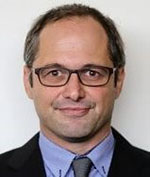
Bas de Veer
Bas de Veer, MS
Assistant Director, UW Medicine Research IT
Bas de Veer, MS, is Assistant Director at UW Medicine Research IT and holds a Bachelor and Masters of Medical Informatics from the University of Amsterdam, Netherlands. He currently oversees both the ITHS REDCap team and the Data Services team.
Bas’s specialty is in translating clinical research needs into practical informatics solutions.

Anind K. Dey
Anind K. Dey, PhD
Professor and Dean, Information School, University of Washington
Anind K. Dey is a Professor and Dean of the Information School at the University of Washington. Anind is renowned for his early work in context-aware computing, an important theme in modern computing, where computational processes are aware of the context in which they operate and can adapt appropriately to that context. His research is at the intersection of human-computer interaction, machine learning, and ubiquitous computing. For the past few years, Anind has focused on passively collecting large amounts of data about how people interact with their phones and the objects around them, to use for producing detection and classification models for human behaviors of interest. He applies a human-centered and problem-based approach through a collaboration with an amazing collection of domain experts in areas of substance abuse (alcohol, marijuana, opioids), mental health, driving and transportation needs, smart spaces, sustainability, and education.
Anind was inducted into the ACM SIGCHI Academy for his significant contributions to the field of human-computer interaction in 2015 and was named an ACM Fellow in 2022. Before starting at the University of Washington in 2018, Anind was the Charles M. Geschke Professor and Director of the Human-Computer Interaction Institute at Carnegie Mellon University for 4 years, and was a member of the faculty for 13 years. Previously, he was a Senior Researcher at Intel Research and an Adjunct Assistant Professor of Computer Science at UC Berkeley. Anind received his PhD and MS in computer science, and an MS in aerospace engineering from Georgia Tech, and a Bachelors in Computer Engineering from Simon Fraser University.

Nic Dobbins
Nic Dobbins
Principal Solutions Architect, UW Medicine Research IT
Nic Dobbins is the Principal Solutions Architect at UW Medicine Research IT and a PhD Candidate in Biomedical Informatics at the University of Washington. Nic is the creator and lead developer of Leaf, a data-model agnostic cohort discovery tool used at UW and universities around the world. Nic’s research interests are at the intersection of natural language processing (NLP), machine learning, question-answering, dynamic query generation, and cohort discovery. Nic is currently working on a new tool, Leaf-AI, which uses natural language criteria to find patients in structured clinical databases.

James Fogarty
James Fogarty
Professor, Paul G. Allen School of Computer Science and Engineering, University of Washington
James Fogarty is a Professor of Computer Science & Engineering at the University of Washington and also directs the UW’s cross-campus DUB initiative for HCI and Design. His overall research is motivated by challenges at the intersection of technology and design, where he develops new tools for using data to empower individuals in important domains like health. Recent and ongoing relevant research includes: (1) characterizing burdens and barriers created by current self-tracking technologies, (2) supporting end-to-end processes for collecting and analyzing self-tracking data toward personal data-driven knowledge and decisions, (3) supporting individuals as they collaborate with peers, family, and health providers around self-tracking data, and (4) supporting the design of effective and inclusive health self-tracking applications. His research has examined these technology design challenges in settings that include cancer and depression, food, irritable bowel syndrome, liver disease, migraine, physical activity, and sleep.

Jerry Jarvik
Jerry Jarvik
Professor, Radiology and Neurological Surgery; Adjunct Professor, Health Services, Pharmacy and Orthopedics & Sports Medicine, University of Washington; Director, UW CLEAR Center for Musculoskeletal Disorders
Dr. Jarvik attended the University of California, San Diego for both undergraduate education and medical school. He then did his residency in Diagnostic Radiology and fellowship in Neuroradiology at the Hospital of the University of Pennsylvania. He obtained his Masters in Public Health (MPH) from the University of Washington in Health Services while a Robert Wood Johnson (RWJ) Clinical Scholar. He is also a former GE-AUR Radiology Research Academic Fellowship (GERRAF) recipient, a career development award for radiologists.
Currently, Dr. Jarvik is Professor with Tenure of Radiology and Neurological Surgery (joint) at the University of Washington. He is adjunct Professor of Health Systems and Population Health, Pharmacy, and Orthopaedics and Sports Medicine. Dr. Jarvik is the PI/Director of the NIH/NIAMS-funded UW Clinical Learning Evidence And Research (CLEAR) Center for Musculoskeletal Disorders, Co-Director of the Comparative Effectiveness, Cost and Outcomes Research Center (CECORC) and Co-Director of the Health Services Research Section for the Department of Radiology. Dr. Jarvik is an internationally recognized expert in the evaluation of diagnostic and therapeutic spine interventions as well as in the field of health services and comparative effectiveness research as it relates to radiology.

Diane Korngiebel
Diane Korngiebel
AI Principles Ethicist and ELSI Scholar, Responsible Innovation, Google
Diane M. Korngiebel has been an ELSI (ethical, legal, and social implications) Scholar and AI Ethicist on the Responsible Innovation Team at Google since May 2022. Dr. Korngiebel started with Google in Oct. 2021 as a Bioethicist on the Google Bioethics team and was a Research Scholar at The Hastings Center, an independent, non-partisan, non-profit bioethics center in Garrison, New York, the previous year. Before joining The Hastings Center in 2020, she was an Associate Professor in the Department of Biomedical Informatics and Medical Education and an adjunct Associate Professor in the Department of Bioethics and Humanities at the University of Washington School of Medicine in Seattle; she maintains affiliate faculty status in both UW departments.
Her interests include the ethics of using AI for health and wellness applications, broadly construed, and the potential and limitations of Big Data science, and appropriate (and inappropriate) design and deployment of digital health and wellness applications.
Dr. Korngiebel’s work has appeared in the American Journal of Public Health, Nature: Genetics in Medicine, NPJ Digital Medicine, and PLoS Genetics. She was recently the principal investigator on a grant funded by the National Human Genome Research Institute and the National Institutes of Health’s Office of the Director on developing an ethics framework to guide biomedical data scientists constructing data models and algorithms. She chairs the AMIA ELSI Working Group and serves on the AMIA Ethics Committee. She has a social sciences doctorate in history from the University of Oxford.

Nathan Kutz
Nathan Kutz, PhD
Professor of Applied Mathematics and Electrical and Computer Engineering; Director, AI Institute in Dynamic Systems, University of Washington
Nathan Kutz is the Yasuko Endo and Robert Bolles Professor of Applied Mathematics and Electrical and Computer Engineering and Director of the AI Institute in Dynamic Systems at the University of Washington, having served as chair of applied mathematics from 2007-2015. He received the BS degree in physics and mathematics from the University of Washington in 1990 and the Phd in applied mathematics from Northwestern University in 1994. He was a postdoc in the applied and computational mathematics program at Princeton University before taking his faculty position. He has a wide range of interests, including neuroscience to fluid dynamics where he integrates machine learning with dynamical systems and control.

Daniel McDuff
Daniel McDuff, PhD
Staff Research Scientist, Consumer Health Research Team, Google; Affiliate Professor, University of Washington
Daniel McDuff is a Staff Research Scientist at Google and Affiliate Professor at the University of Washington. Daniel completed his PhD at the MIT Media Lab in 2014 and has a B.A. and Masters from Cambridge University. Previously, Daniel worked at the UK MoD, was Director of Research at MIT Media Lab spin-out Affectiva. His work has received nominations and awards from Popular Science magazine, South-by-South-West, The Webby Awards, ESOMAR and the Center for Integrated Medicine and Innovative Technology (CIMIT).
His projects have been reported in many publications including The Times, the New York Times, The Wall Street Journal, BBC News, New Scientist, Scientific American and Forbes magazine. Daniel was named a 2015 WIRED Innovation Fellow, an ACM Future of Computing Academy member. Daniel has published over 150 peer-reviewed papers on machine learning (NeurIPS, ICLR, ICCV, ECCV, ACM TOG), biomedical engineering (TBME, EMBC) and human-computer interaction (CHI, CSCW, IUI). Daniel is also co-founder of RAIL, a collaboration that creates AI licenses for the responsible use of AI (https://www.licenses.ai/blog) that are now being used by many publicly available AI models (e.g., stablediffusion).

Shannon McWeeney
Shannon McWeeney, PhD
Chief Data Officer, Professor and Vice Chair, Department of Medical Informatics and Clinical Epidemiology, Oregon Health and Science University
Shannon McWeeney, PhD, is a Professor and Vice-Chair in the Department of Medical Informatics and Clinical Epidemiology at Oregon Health and Sciences University. She served as the Head of the Division of Bioinformatics and Computational Biology for 12 years, co-leading the creation of the graduate program in Bioinformatics and Computational Biomedicine, which is part of OHSU’s NLM T15. She is the inaugural Chief Data Officer for the OHSU Knight Cancer Institute and has a career-long commitment to data sharing and patient engagement. She served as a member of the Enhanced Data Sharing working group for the NCI Blue Ribbon Panel for White House Moonshot Initiative and as a member of the Biden Cancer Initiative Data Sharing and Patient Empowerment workstream. In 2010, she was selected as a Kavli Frontiers Fellow by the US National Academy of Sciences. Her work is at the intersection of computer science, biostatistics, genetics and medicine to develop approaches to solve research bottlenecks, as wells as novel ways to visualize and interpret information. She is currently M-PI for OHSU’s Acquired Resistance to Therapy Network (ARTNet) center, M-PI for the Bridge2AI AI-READI Tools module, co-chairs the NHGRI Genomic Data Science Working Group and serves on the American Society for Hematology Artificial Intelligence Task force.

Sean Mooney
Sean Mooney, PhD
Professor, Biomedical Informatics and Medical Education, University of Washington; Chief Research Information Officer, UW Medicine; Interim Director, UW Institute for Medical Data Science; Director of Biomedical Informatics, Institute of Translational Health Science; Associate Director, National Alzheimer’s Coordinating Center (NACC)
Dr. Sean Mooney is the Chief Research Information Officer (CRIO) of UW Medicine, the Director of Informatics for the Institute of Translational Health Sciences, an Associate Director of the National Alzheimers Coordinating Center (NACC), and a Professor in the Department of Biomedical Informatics and Medical Education at the University of Washington. As CRIO, he leads the growing Research Information Technology team that contributes to a number of national research networks the National Kidney Precision Medicine Project, the National Alzheimer’s Coordinating Center, the UW Clear Center and others. Some notable efforts include leading the team that developed the open source Leaf application for clinical data querying and extraction, managed a REDCap instance with >25k projects and >15k active users, managing the FH, UW and Seattle Cancer Care Alliance joint CTMS application, and enhancing the UW Medicine EDW with advanced analytics including NLP. Currently he is focusing on developing an Epic EHR Research team for supporting research in the EHR at UW Medicine and leading the newly founded UW Institute for Medical Data Science.
His research interests focus on data science applications in biomedicine, particularly in understanding the underlying molecular causes of inherited genetic diseases and cancer. Over his career he has been on the faculty at the Indiana University, the University of Washington and the Buck Institute and has taught at Stanford University, UCSF, and the University of California Berkeley. He is an expert in a wide range of STEM fields, having been trained in chemistry and computer science, and appointed at different times in his career as a faculty member in many areas including genetics, microbial biology, informatics, and gerontology. A prolific speaker, he has given more than 150 invited seminars throughout the world.
Dr. Mooney is a 4th generation Seattleite and in his spare time he is found in the outdoors having climbed Mt. Rainier and Mt. Baker and has bicycled across the United States twice.

Eric Neil
Eric Neil
Chief Information Officer (CIO), UW Medicine IT Services
Eric was named the interim CIO in January 2020 and later named the permanent CIO in October 2021. He leads the UW Medicine IT Services department and provides technology leadership for patient care, medical education, and research across the UW Medicine health system.
Prior to the CIO position, Eric served UW Medicine as a trusted consultant in a number of interim leadership roles including Chief Administrative Officer, Program Director, and Revenue Cycle Director. He led several key UW Medicine initiatives including the implementations of an enterprise electronic health record, enterprise billing system, and integration of IT teams.
Before joining UW Medicine, Eric spent 25 years as a Principal Consultant at LaPlant Consulting Group, a healthcare revenue cycle and technology consulting firm based in Seattle. He served hospitals and academic health system clients with interim technology and revenue cycle leadership and numerous successful consulting engagements.
Previous to his consulting work, Eric also served in leadership roles at Virginia Mason Medical Center and Lincare Holdings.
Eric earned his BA in Health Services Administration from Eastern Washington University.

Shwetak Patel
Shwetak Patel, PhD
Washington Research Foundation Endowed Professor, Paul G. Allen School of Computer Science & Engineering
Shwetak is currently the Washington Research Foundation Entrepreneurship Endowed Professor in the Paul G. Allen School of Computer Science & Engineering and the Department of Electrical & Computer Engineering at the University of Washington, where he directs the Ubicomp Lab. Concurrently, he also leads Health Technologies at Google and is a Distinguished Scientist. His research is in the areas of Human-Computer Interaction, Ubiquitous Computing, and Sensor-Enabled Embedded Systems, with a particular emphasis on the application of computing to health, sustainability, and interaction.
Shwetak received his PhD in Computer Science from Georgia Tech in 2008. He is a recipient of a MacArthur Fellowship, Sloan Fellowship, Microsoft Research Faculty Fellowship, MIT TR-35 Award, World Economic Forum Young Global Scientist Award, NSF Career Award, Presidential PECASE award, and the ACM Prize in Computing. He is also an ACM Fellow. Shwetak is a co-founder of a home energy monitoring company called Zensi (acquired by Belkin in 2010), a low-power home wireless sensing company called SNUPI Technologies (acquired by Sears in 2015), and a mobile health company called Senosis Health (acquired by Google in 2017).

Shirley Ren
Shirley Ren, PhD
Applied Research Manager, Health AI Team, Apple
Shirley graduated from UW in 2015 with a PhD in Statistics. She joined Apple Health AI team in 2019 leading a team of applied research scientists working on health projects.
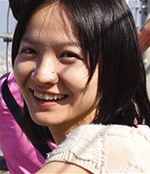
Mark Richards
Mark Richards, PhD
Provost and Executive Vice President for Academic Affairs, University of Washington
Mark Richards joined the University of Washington as provost and executive vice president for academic affairs in 2018. A geophysicist, Dr. Richards also holds a faculty appointment in the College of the Environment’s Department of Earth and Space Sciences.
Dr. Richards came to the UW from the University of California, Berkeley, where he was professor of Earth and Planetary Science. While at Berkeley, he served as dean of mathematical and physical sciences, and simultaneously as executive dean of the College of Letters and Science. For his work on racial, ethnic, and gender diversity in the STEM fields, Dr. Richards received Berkeley’s two highest awards for promoting equity and inclusion.
As the UW’s chief academic and budget officer, Dr. Richards is focusing his leadership on core areas to advance the University’s academic mission. These areas include linking capital investments to academic priorities; replacing the UW’s financial infrastructure; improving mental health services for students; and increasing fellowship support for Ph.D. students.
Dr. Richards’ research centers on dynamic processes in the interior of the Earth and the terrestrial planets, and how these processes affect geological phenomena such as plate tectonics and volcanic eruptions.
He earned his bachelor’s degree in engineering from the University of Texas at Austin, and his master’s and Ph.D. in geophysics from the California Institute of Technology.

Lynn M. Rose
Lynn M. Rose, PhD
Affiliate Associate Professor, School of Pharmacy, University of Washington and Drug and Device Advisory Committee Director, Institute of Translational Health Sciences
Lynn Rose is an affiliate associate professor in the UW School of Pharmacy and a founding member of the UW Institute of Translational Health Sciences Drug and Device Advisory Committee, which advises academic investigators on the regulatory requirements for product development. She was previously a senior executive in the biomedical industry, where she was responsible for preclinical, clinical and regulatory programs. This experience included participation on multiple drug development teams, two of which resulted in marketed products for the treatment of cystic fibrosis and two for hemostasis. Rose shares her expertise in biomedical products, clinical protocols, the development of regulatory strategies and the management of regulatory submissions to federal authorities, to students in the master’s degree and the Biomedical Regulatory Affairs Certificate Program.
Rose’s research experience is in the field of immunology, with an emphasis on autoimmunity, infectious disease and immuno-oncology. She earned her PhD in immunology from the University of Geneva, Switzerland.

Dushyant Sahani
Dushyant Sahani, MD
Professor and Chair, Department of Radiology, University of Washington
Dushyant Sahani, MD, is a professor and Chair of Radiology at the University of Washington in Seattle, since 2019. He is currently involved in investigating new CT technologies such as multi energy scanners and their impact on patient care, patient safety, healthcare cost and outcomes.
Dr Sahani has contributed over 345 peer reviewed original articles, and reviews to medical literature, numerous book chapters, and has co-edited two textbooks. His work has appeared in journals such as: the New England Journal of Medicine, Nature Medicine, Journal of Clinical Oncology, Hepatology, Radiology, American Journal of Roentgenology, Annals of Surgery, Investigative Radiology, and European Journal of Radiology. He has delivered over 300 lectures nationally and internationally. He has been a visiting professor at numerous universities in the United States and abroad. He served as 2008-2009 “Visiting Professor” of the Society of Abdominal Radiology and the 2016 International Visiting Professor for the Radiological Society of North America.
He is an associate editor for Abdominal Imaging, serves on the editorial board of JCAT and is a reviewer for over 25 scientific journals. Dr Sahani is also a fellow member of all leading radiological societies including: ACR, ARRS, CMR, ESGR, NERRS, RSNA, SABI (formerly SCBT/MR), and SGR. In 2005 and 2007, he earned a research award from the Society of Gastrointestinal Radiology, and a Hounsfield award from the Society of Computed Body Tomography and MR in 2005. Dr. Sahani is the past president of SCBT-MR and Vice President for International Society of Computed Tomography (ISCT).
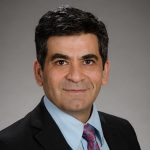
Scott Saponas
Scott Saponas
Senior Director, Microsoft Research, Biomedical Computing

Ali Shojaie
Ali Shojaie, PhD
Professor and Associate Chair, Department of Biostatistics, School of Public Health, University of Washington
Ali Shojaie is Professor and Associate Chair of Biostatistics, Adjunct Professor of Statistics and founding director of the Summer Institute for Statistics in Big Data (SISBID) at the University of Washington. Originally trained in Industrial and Systems Engineering, he obtained his PhD in Statistics from the University of Michigan, while completing Masters degrees in Applied Mathematics and Human Genetics. Dr. Shojaie’s research lies in the intersection of statistical machine learning, statistical network analysis and applications in biology and social sciences. His research has been recognized by multiple best paper awards. He is a recipient of the 2022 Leo Breiman Award from the ASA Section on Statistical Learning and Data Science and elected a Fellow of the American Statistical Association (ASA).

Shawn Sullivan
Shawn Sullivan
Cofounder & Chief Technology Officer, Phase Genomics
Mr. Sullivan has served as the CTO of Phase Genomics since its founding in 2015. He heads all software engineering, data science, machine learning, computational biology, and bioinformatics efforts at Phase Genomics. In this capacity, he has led the invention, development, and deployment of multiple technologies, including deep-learning–based models for understanding and diagnosing cancer, machine learning models for assessing antibiotic resistance in microbial communities, predictive models for identifying host relationships for plasmids and phages, and new computational tools for the analysis of chromatin structure, genome assembly, and metagenomics. He received his B.S. in Computer Science & Engineering from MIT, and is a software industry veteran with 8 years of experience designing large-scale data processing and analysis systems as well as leading software development teams at Microsoft.

Peter Tarczy-Hornoch
Peter Tarczy-Hornoch, MD
Chief Data Officer, UW Medicine; Professor and Chair, Department of Biomedical Informatics and Medical Education; Professor, Department of Pediatrics, Division of Neonatology; Adjunct Professor, Department of Computer Science and Engineering, University of Washington
Peter Tarczy-Hornoch has over 40 years of experience in computer science, over 35 years in biomedical informatics and 20 years in clinical medicine (pediatrics and neonatology). He has been at the University of Washington for 30 years, serving as Head of the Division of Biomedical and Health Informatics since 2001 and serving as Chair of the Department of Biomedical Informatics and Medical Education since 2011. He has played a leadership role in the creation and evolution of the BIME educational programs (undergraduate (joint with iSchool), MS/PhD, postdoctoral, applied clinical informatics MS (CIPCT) joint with Nursing, Clinical Informatics Fellowship joint with Family Medicine). He has led a number of key initiatives in informatics practice (praxis) including the areas of telemedicine, digital library, electronic medical records, data warehousing (including seminal work on 1st, 2nd and 3rd generation UW Medicine Enterprise Data Warehouses), analytics, clinical research informatics).
His unifying theme of research over the last two decades has been data integration of electronic biomedical data (clinical, genomic and other including data) both for a) knowledge discovery and b) in order to integrate this knowledge with clinical data at the point of care for decision support. His current research focuses on a) secondary use of electronic medical record (EMR) for translational research including outcomes research, learning healthcare systems, based on complex phenotypic eligibility criteria, b) the use of EMR systems for cross institutional comparative effectiveness research, and c) integration of genomic data into the EMR for clinical decision support in the context of translational bioinformatics

Michael Willingham
Michael Willingham
Director of Regulatory Affairs, Google Health
Michael Willingham is the Director of Regulatory Affairs at Google Health and is involved in using artificial intelligence and machine learning to assist in diagnosing cancer, predicting patient outcomes, preventing blindness, and much more. He is a 20+ year senior executive with 30+ years of experience in the healthcare technology industry, with roles in Regulatory Affairs, Quality Assurance, Information Security, Research, Product Development, Human Resources, and International Business.
Mike brings specific experience in healthcare IT, medical device design and manufacturing, embedded and stand-alone software, management system certifications, total quality management, and worldwide regulatory affairs.
Companies and positions:
- Google (2020 -date) – Director, Regulatory Affairs for Google Health
- 98point6 (2016-2020) – VP, Quality, Regulatory and Security
- Caradigm (2012-2016) – VP, Quality, Regulatory and Security
- Philips Healthcare (2006-2012) – Sr. Director, Quality & Regulatory
- Physio-Control (1984-2006) – VP, Quality & Regulatory and VP, Int’l Business

Meliha Yetisgen
Meliha Yetisgen, PhD
Professor, Biomedical Informatics and Medical Education: Adjunct Professor, Department of Linguistics, University of Washington
Meliha Yetisgen is a Professor in the Department of Biomedical Informatics and Medical Education and Adjunct Professor in the Department of Linguistics at the University of Washington. Before joining University of Washington, she worked in industry as a researcher. Her research is on natural language processing (NLP) and its application to clinical domain to enable meaningful secondary use applications. She focuses on defining complex NLP questions on different sources of clinical narratives and developing state-of-the-art text processing approaches to solve them. She uses those NLP solutions to enable clinical secondary use applications that have direct impact on improving quality of patient care and advancing clinical research. Dr. Yetisgen received her BS degree on Computer Engineering from Bilkent University (Ankara, Turkey) and MS degree on Computer Engineering from Middle East Technical University (Ankara, Turkey). She received her PhD from University of Washington.

2017-2018 Cohort
Jie An, PhD
Acting Assistant Professor of Medicine, Division of Rheumatology
University of Washington
Project Title: Screen and test the surrogate disease biomarkers and drug candidates for Systemic Lupus Erythematosus (SLE) and Rheumatoid arthritis (RA).
Eeeseung Byun PhD, RN
Assistant Professor
University of Washington School of Nursing
Project Title: Mechanisms of Symptoms in Subarachnoid Hemorrhage: Sleep Disturbance, Fatigue and Impaired Cognition
Brad Dieter, PhD
Foundation Research Fellow
Providence Medical Research Center
Project Title: Serum Amyloid A as a Prognostic, Predictive, and Actionable Biomarker for Diabetic Kidney Disease

Clare Fitzpatrick, PhD
Assistant Professor, Mechanical & Biomedical Engineering
Boise State University
Project Title: Musculoskeletal adaptation mechanisms in healthy and pathological subjects
Sandeep Khot, MD,MPH
Associate Professor, Neurology
Harborview Medical Center/University of Washington
Project Title: Maximizing use of continuous positive airway pressure in stroke patients with obstructive sleep apnea during inpatient rehabilitation
Allison Lambert, MD
Adjunct Clinical Instructor, Division of Pulmonary and Critical Care Medicine
University of Washington
Project Title: The Role of the Antimicrobial Peptide Cathelicidin in Acute Exacerbation of COPD
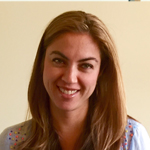
Holly Martinson, PhD
Assistant Professor, Molecular Biology
University of Alaska Anchorage
Project Title: Molecular Causes and Mechanistic Underpinning of Alaska Native breast cancer

Amy Navratil, PhD
Assistant Professor, Department of Zoology and Physiology
University of Wyoming
Project Title: JNK 1/2 in Regulation of Fertility
Kathleen Ramos, MD, MS
Senior Fellow/Acting Instructor, Division of Pulmonary, Critical Care & Sleep Medicine
University of Washington
Project Title: Predicting survival and planning for lung transplantation in severe cystic fibrosis
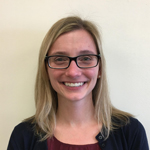
Nathaniel Williams, PhD
Assistant Professor, School of Social Work
Boise State University
Project Title: Testing an organizational culture intervention to improve routine outcome monitoring implementation in usual care
No, vouchers cannot be awarded until IRB/IACUC approval is confirmed.
Event Video
Description
Increasing the engagement of people from racially/ethnically diverse and lower income communities is critical to addressing the disparities in health and health outcomes for these populations. This session will explore strategies and considerations of engaging diverse communities in clinical/translational research.
Event Materials
1 MBHANDOUT: American Hospital Association Institute for Diversity and Health Equity 2020 Health Equity Snapshot Action Toolkit4 MBSLIDE PRESENTATION: Increasing Inclusivity in Participant Recruitment
Learning Objectives
By the end of this session, attendees will be able to:
- Describe the rationale and importance of diversifying research participation
- Identify 3 strategies that increase the likelihood of increasing the racial/ethnic and economic diversity of research participants
- Describe expectations for inclusion of diverse populations in research and suggested language for reporting on diverse identities
Schedule of Activities
12:00-12:10pm – Welcome, Overview, Introductions
12:10-1:25pm – Presentation and Q & A
1:25-1:30pm – Thank You and Feedback Survey
About the Speaker
 Brian E. Saelens, Ph.D. is a Professor of Pediatrics and Psychiatry & Behavioral Sciences (faculty-scientist track) at the University of Washington and Principal Investigator at Seattle Children’s Research Institute. He is the Associate Director of Research in the Division of General Pediatrics and a Principal Investigator in SCRI’s Center for Child Health Behavior and Development. Dr. Saelens is the Interim Research Director for the Center for Diversity and Health Equity at Seattle Children’s and co-leads the Integrating Special Populations program as part of the ITHS. Dr. Saelens is trained as a child clinical health psychologist. His research interests include obesity treatment and prevention, with a focus on family-based pediatric weight management interventions and the examination of policy, systems, and environmental influences on healthy eating and active living. He is interested in the application of equity frameworks to research and to policy, systems, and environment change implementation. Dr. Saelens’ bibliography is available at: https://www.ncbi.nlm.nih.gov/myncbi/brian.saelens.1/bibliography/public
Brian E. Saelens, Ph.D. is a Professor of Pediatrics and Psychiatry & Behavioral Sciences (faculty-scientist track) at the University of Washington and Principal Investigator at Seattle Children’s Research Institute. He is the Associate Director of Research in the Division of General Pediatrics and a Principal Investigator in SCRI’s Center for Child Health Behavior and Development. Dr. Saelens is the Interim Research Director for the Center for Diversity and Health Equity at Seattle Children’s and co-leads the Integrating Special Populations program as part of the ITHS. Dr. Saelens is trained as a child clinical health psychologist. His research interests include obesity treatment and prevention, with a focus on family-based pediatric weight management interventions and the examination of policy, systems, and environmental influences on healthy eating and active living. He is interested in the application of equity frameworks to research and to policy, systems, and environment change implementation. Dr. Saelens’ bibliography is available at: https://www.ncbi.nlm.nih.gov/myncbi/brian.saelens.1/bibliography/public
Event Video
For those who are viewing the recording, but did not attend the live event, please contact Brenda Zierler (brendaz@uw.edu) to receive and complete the evaluation survey. The evaluation survey is required in order to receive the Team Science Seminar Series certificate of completion.
Description
In this 9th session of the Team Science Seminar Series, you will learn strategies to ensure that your research studies are designed to have a positive impact on health equity. These include careful and collaborative design of interventions, as well as thoughtful partnership with communities. You will also gain an understanding of how research can contribute to or maintain existing disparities, or reduce disparities.
Learning Objectives
At the end of this seminar, participants will:
- Understand the ways in which research can exclude participants from underrepresented and marginalized groups
- Learn how to design and conduct your research to increase health equity
- Learn how to effectively partner with community organization for research
Event Materials
5 MBSLIDE PRESENTATION: Designing and Conducting Research for Health Equity[/prettyfilelink}[prettyfilelink size="199 KB" src="https://www.iths.org/wp-content/uploads/Equitable-research-best-practices-4.3.2023.pdf" type="pdf"]Equitable Research Best Practices 20231 MBProject Muse Community Partnership Guide for Engaging with Academic Researchers
About the Speaker
 Tumaini Rucker Coker, MD, MBA, is the Division Head of the General Pediatrics Department and Professor of Pediatrics at the University of Washington School of Medicine and Seattle Children’s. As a general pediatrician and community-engaged health services researcher, her research focuses on community-partnered pediatric primary care delivery design to promote health equity and eliminate health and healthcare disparities for children and families in low-income communities. She is the former and founding Research Director of the Health Equity Research Program at Seattle Children’s Center for Diversity and Health Equity, and serves as the Co-Director of the University of Washington’s NIH-funded Child Health Equity Research Fellowship. Dr. Coker is a member of the United States Preventive Services Task Force (USPSTF).
Tumaini Rucker Coker, MD, MBA, is the Division Head of the General Pediatrics Department and Professor of Pediatrics at the University of Washington School of Medicine and Seattle Children’s. As a general pediatrician and community-engaged health services researcher, her research focuses on community-partnered pediatric primary care delivery design to promote health equity and eliminate health and healthcare disparities for children and families in low-income communities. She is the former and founding Research Director of the Health Equity Research Program at Seattle Children’s Center for Diversity and Health Equity, and serves as the Co-Director of the University of Washington’s NIH-funded Child Health Equity Research Fellowship. Dr. Coker is a member of the United States Preventive Services Task Force (USPSTF).
Northwest Participant and Clinical Interactions Network
Annual Meeting 2024
Strengthening Cultural Humility for Diversifying Research Participation
EVENT DETAILS
Site Champion Retreat:
Thursday, May 9, 3:00–5:00pm (Pacific)
Seattle Children’s Research Institute: Building Cure
Room 750 (First Floor)
1920 Terry Ave, Seattle, WA 98101
All-Attendee Networking Event:
Thursday, May 9, 5:00–6:30pm (Pacific)
Seattle Children’s Research Institute: Building Cure
Room 750 (First Floor)
1920 Terry Ave, Seattle, WA 98101
Conference:
Friday, May 10, 9:00am–4:15pm (Pacific)
Seattle Children’s Research Institute: Building Cure
1920 Terry Ave, Seattle, WA 98101
Cost: Free
A hybrid option will also be available and a Zoom link will be distributed later.
Event Description
Our 11th NW PCI Network Annual Meeting will focus on how we, as a network, can strengthen our sense of cultural humility to diversify participation in research. We are pleased to announce that the Bonnie Ramsey Keynote speaker will be Abigail Echo-Hawk, Executive Vice President of the Seattle Indian Health Board and Director of the Urban Indian Health Institute. Ms. Echo-Hawk, an enrolled citizen of the Pawnee Nation of Oklahoma, is a national leader in supporting the health of urban Indigenous communities and serves on a variety of committees dedicated to health equity and justice. Her talk is titled “Time to Get Uncomfortable: Equity in Action.”
On May 9th, we will host a Site Champions Retreat to discuss opportunities and future activities for the Network, and an all-attendee networking event. Additionally, we’re excited to share updates on the Research Study Metrics Dashboard, a tool designed to improve regional research operations, and a learning laboratory to explore training/workforce development for research coordinators. Come prepared to be both a learner and a teacher as we continue our journey into the Network’s next decade!
Invite Research Participants
We all know the perspectives of patients and research participants are critical to ensure the quality of research at our institutions. We want to hear their voices, too! When you register, please indicate if there are participants from your organization who would like to attend, and a member of our team will reach out to assist.
Travel to Seattle
ITHS will support travel and one night of lodging (unless travel requires two nights) for one site champion and up to two research participants from each NW PCI member site. ITHS will cover your airfare and lodging, as well as related travel expenses (i.e., ground transportation, per diem and airport parking). Additional representatives from your organization are welcome to attend at their own expense.
Check back soon for details on parking.
Agenda
NW PCI Annual Meeting 2024 Agenda
| Thursday, May 9 Site Champions Retreat (3–5pm) & All-Attendee Networking Event (5–6:30pm) |
|
| 3:00pm | Welcome |
| 3:15pm | Understanding the Lessons of the Past as We Plan for the Future |
| 5:00pm | All-Attendee Networking Reception Begins |
| 5:15pm | Let's Get This Party Started! |
| 6:30 | Adjourn |
| Friday, May 10 Conference (8:30am–3:30pm) |
|
| 8:30am | Check-In and Breakfast |
| 9:00am | Welcome |
| 9:15am | A Word From ITHS |
| 9:30am | Update on the NW PCI Network |
| 10:00am | Welcome ITHS TL1 and KL2 Scholars |
| 10:10am | Bonnie Ramsey NW PCI Network Keynote Lecturer: Abigail Echo-Hawk - Time to Get Uncomfortable: Equity in Action |
| 11:10am | Panel and Audience Discussion: Respecting Community Knowledge and Practicing Humility in Research |
| 12:00pm | Lunch |
| 12:45pm | Learning Laboratories: Supporting a Diverse Research Workforce: Education & Training Resources for Research Staff |
| 1:45pm | Break |
| 2:00pm | Learning Laboratories: Developing a Career Ladder for Research Coordinators |
| 2:45pm | Regional Research Highlights: Opportunities for Improving Research Operations, Rolling Out the NW PCI Research Study Metrics Dashboard NW PCI Network Priorities and Project Ideas for the Future |
| 3:15pm | Closing: Next Steps, Evaluation & Acknowledgements |
| 3:30pm | Adjourn |
Speakers and Panelists

Bonnie Ramsey Northwest Participant and Clinical Interactions Network Lectureship Keynote Speaker:
Abigail Echo-Hawk, MA (Pawnee)
Executive Vice President, Seattle Indian Health Board
Director, Urban Indian Health Institute
Panelists
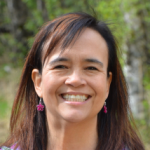
Denise Dillard, PhD, MS (Inupiaq Eskimo)
Co-Director, IREACH; Professor, Elson S. Floyd College of Medicine, Washington State University

Vernon Grant, PhD (Amp Ska Pi Pikuni)
Assistant Research Professor, Center for American Indian and Rural Health Equity, Montana State University

Alma Knows His Gun McCormick (Apsáalooke)
Executive Director, Messengers for Health, Billings, Montana

Amal Saleh
Program Manager, Research Integration Hub, Seattle Children’s Research Institute
Speakers and Moderators

John K. Amory, MD, MPH, MSc
Associate Dean of Translational Sciences, University of Washington School of Medicine; Principal Investigator, Institute of Translational Health Sciences

Laura Baker, MS, RN, NE-BC
Senior Director, Clinical Research Integration, Seattle Children’s Research Institute

Dani Blackburn, MSBA, CCLS
Data Analyst, Biostatistics, Epidemiology and Analytics in Research (BEAR), Seattle Children’s Research Institute

Robert H. Coker, PhD, FACSM, FTOS
Deputy Director/Research Professor, Montana Center for Work Physiology and Exercise Metabolism, University of Montana

Kara Cooper, CCRC
Manager, Training and Curriculum Development, Research Integration Hub, Seattle Children’s Hospital

Laurie A. Hassell
Director of Community Engagement, Institute of Translational Health Sciences

Russell Lackey, MS
Director of Education, Institute of Translational Health Sciences
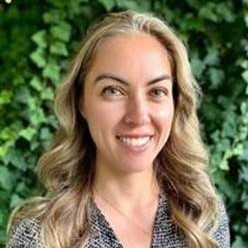
Allison Lambert, MD, MHS
Co-Director, NW PCI; Assistant Professor of Medicine, University of Washington

Cindi Laukes, MA, MFA
Director & Chief Operating Officer, Neural Injury Center; Research Affiliate Faculty, Integrated Physiology, University of Montana

Christy McKinney, PhD, MPH
Associate Professor, Department of Pediatrics, University of Washington; Director, KL2 Program, Institute of Translational Health Sciences

Jodi Smith, MD, MPH
Attending Physician, Seattle Children’s Hospital; Professor of Pediatrics, University of Washington School of Medicine; Co-Principal Investigator, Institute of Translational Health Sciences

Hilaire J. Thompson, PhD, RN, ARNP
Professor, Behavioral Nursing & Health Informatics, University of Washington; Co-Director, TL1 Program, Institute of Translational Health Sciences

Katherine R. Tuttle, MD, FASN, FACP, FNKF
Executive Director for Research, Providence Health Care; Regional Principal Investigator, ITHS
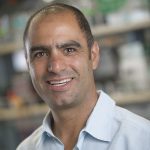
Blake Wiedenheft, PhD
Professor, Department of Microbiology & Cell Biology, Montana State University; Co-Director, TL1 Program, Institute of Translational Health Sciences
Event Materials
Location Information
Seattle Children’s Research Institute: Building Cure
Room 750 (First Floor)
1920 Terry Ave, Seattle, WA (Google Map)
You may also attend the conference virtually! The Zoom link will be sent before the meeting to everyone who chooses the virtual attendance option. Please note, virtual attendance will limit interactive session experience, and will only be available 9am–12pm PDT on day 2. In-person attendance is highly recommended.
Parking:
Parking will be limited, but if you must drive and park, please park at Seattle Children’s Research Institute: Jack R. MacDonald Building (JMB) (1900 9th Ave.)
The JMB parking garage entrance is located off of Stewart Street between Terry Ave and 9th Ave (map)
More building info: https://www.seattlechildrens.org/research/research-institute/facilities/building-cure-research-institute-expansion/
About the NW PCI Network
The Northwest Participant and Clinical Interactions (NW PCI) Network is a collaboration of regional translational research hubs located across the five-state WWAMI (Washington, Wyoming, Alaska, Montana, Idaho) region. This Network connects diverse populations to local, high-quality clinical research by building research partnerships between investigators, clinicians and clinical organizations. Through these partnerships, patients can participate in and benefit from research studies near their homes, and clinicians and health care administrators can collaborate on research studies with minimal interruptions to clinical operations and facilitate research conducted in real-world health care settings.
Contact Us
Contact us if you have any questions about this event.
Bonnie Ramsey Northwest Participant and Clinical Interactions Network Keynote Lectureship
 Dr. Bonnie Ramsey, a dedicated and distinguished pediatric pulmonologist is a co-founder of the NW PCI Network. The highly successful Cystic Fibrosis Therapeutics Development Network, directed by Dr. Ramsey served as an important model for development of the NW PCI Network. Founders relied heavily on Dr. Ramsey’s experience and expertise. Dr. Ramsey fully understands the importance of equal, multidirectional partnerships and the NW PCI Network policies and procedures reflect this vision. In honor of Dr. Ramsey’s many contributions, the NW PCI Network is pleased to announce the Bonnie Ramsey Northwest Participant and Clinical Interactions Network Keynote Lectureship. Keynote lectures at the NW PCI Annual Meeting will honor Dr. Ramsey’s legacy and serve as a reminder of the importance of “meeting people where they are.”
Dr. Bonnie Ramsey, a dedicated and distinguished pediatric pulmonologist is a co-founder of the NW PCI Network. The highly successful Cystic Fibrosis Therapeutics Development Network, directed by Dr. Ramsey served as an important model for development of the NW PCI Network. Founders relied heavily on Dr. Ramsey’s experience and expertise. Dr. Ramsey fully understands the importance of equal, multidirectional partnerships and the NW PCI Network policies and procedures reflect this vision. In honor of Dr. Ramsey’s many contributions, the NW PCI Network is pleased to announce the Bonnie Ramsey Northwest Participant and Clinical Interactions Network Keynote Lectureship. Keynote lectures at the NW PCI Annual Meeting will honor Dr. Ramsey’s legacy and serve as a reminder of the importance of “meeting people where they are.”
Researchers now have a new resource to help them accelerate their discoveries from the bench to the bedside. The best part? They can find it in UW’s Health Science Library.
Located on the lower level of the library, the Idea Incubator Space is equipped with the latest technology and data management resources. The room’s main attraction is a large data wall, three televisions wide and two televisions tall, that can be used together or separately to display information for an audience. The room also features an Amazon Echo, whiteboards, modular sofas, and a camera for video conferencing.
The Idea Incubator Space is part of the larger Translational Research and Information Lab (TRAIL), a collaboration of experts in data management and visualization that aim to accelerate healthcare research through tools, team science, and applications.
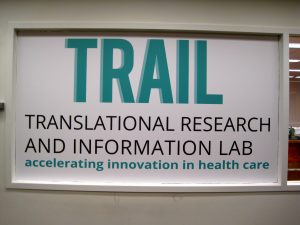 In addition to using the Idea Incubator Space, researchers can tap into the multidisciplinary expertise available through TRAIL. Experts from the UW, ITHS, and Health Sciences Library will be available to provide consultations on research data management tools like REDCap, data visualization tools such as Tableau, and other research tools.
In addition to using the Idea Incubator Space, researchers can tap into the multidisciplinary expertise available through TRAIL. Experts from the UW, ITHS, and Health Sciences Library will be available to provide consultations on research data management tools like REDCap, data visualization tools such as Tableau, and other research tools.
“TRAIL brings cutting-edge research solutions into the library, where they are more accessible to researchers,” said ITHS computer specialist Bas de Veer, who provides REDCap consultations in the Idea Incubator Space. “This collaboration will help researchers access these tools in a faster and more collaborative way.”
TRAIL is a partnership between the Institute of Translational Health Sciences, the University of Washington Health Sciences Library, UW Medicine Research Information Technology., and the National Network of Libraries of Medicine – Pacific Northwest Region.
“TRAIL is going to help define what success or failure might look like before launching a project by connecting new investigators to the campus support services, collaborators, and biomedical literature,” said Tania Bardyn, MLIS, AHIP, Associate Dean of University Libraries, Director of the Health Sciences Library Director, National Network of Libraries of Medicine (NN/LM) Pacific Northwest Region (PNR). “There is no doubt, that through this partnership we are building a premier health sciences library of the future at UW. It is going to change how investigators envision using health sciences libraries to conduct multidisciplinary research.”
“TRAIL is more than a room,” said Carlos De La Peña, Executive Director of ITHS. “This is an opportunity to promote team science and collaboration through utilization of the Idea Incubator Space and TRAIL services.”
Visit the UW Health Sciences Library website for more information about TRAIL and how to rent the Idea Incubator Space.








